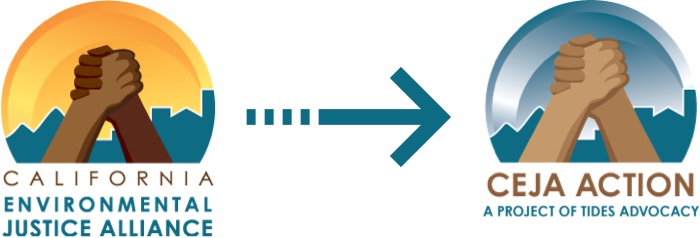Governor Brown Proposes $176.6 Million Exide Clean Up Plan
Decades of pollution from Exide left behind alarming levels of lead contamination in Southeast Los Angeles. Since the battery recycling plant shut down last year, community groups have maintained that the funds set aside for clean up costs have been insufficient.
Finally, thanks to sustained pressure and dedicated organizing by Communities for a Better Environment, East Yard Communities for Environmental Justice, and other local community groups and residents, the commitment to make clean up a priority has come!
Communities for a Better Environment (CBE) commends the Governor’s commitment to fund the clean-up and on-going testing of soil of the South East and East LA neighborhoods after decades of the DTSC, AQMD, and the State of California allowing Exide to poison communities with lead and arsenic and other toxics. This announcement comes weeks after CBE members in a delegation with the other impacted communities and Hilda Solis went to Sacramento to demand funds for the testing and clean-up of contaminated homes. CBE thanks Supervisor Hilda Solis, Senator Kevin De Leon, and the hundreds of community residents who demanded the closure and funding for clean-up.
It has been estimated that over 100,000 residents have been exposed to toxic levels of lead since 1992. Last year, CBE, community members and local groups applauded the closing of the battery smelter after a decade of asking the DTSC and local officials to enforce the law against Exide. Over this time, residents have been dealing with the health impacts from exposure to lead and the lack of action from officials. Residents have suffered from health impacts, and the long-term consequences are alarming especially for children and pregnant women. We are told that our children should not touch dirt outside, and that we shouldn’t grow fruits and vegetables. Lead is a carcinogen, chronic health effects include nervous and reproductive system disorders, neurological and respiratory damage, cognitive and behavioral changes, and hypertension. During this same period, families and community groups canvased, protested, raised awareness, and told their stories and collectively demanded the eventual closing of the plant and necessary clean up.
The Governor’s long-awaited announcement is a necessary step towards providing the necessary relief to thousands of impacted families. CBE and its members, many of whom live in the impacted areas, have advocated to protect families from Exide’s contamination for many years.
We engaged very closely with the DTSC and advocated for its denial of Exide’s then-pending application, based upon legal requirements and the facts. While the DTSC was still undertaking its review of the application, and thus its decision was still pending, the U.S. Attorney’s Office entered into a non-prosecution agreement with Exide, which included Exide’s agreement to voluntarily close down. The Governor’s announcement provides great relief to residents after years of delayed action by the DTSC. Unfortunately, low income communities continue to suffer the consequences of poor oversight by the DTSC.
The DTSC needs to be held accountable for its neglect and total disregard for community health to assure that the the most vulnerable communities get the protection they are entitled to under the law.
For more information, contact Milton Hernandez-Nimatuj at 323 826 9771 x 112


